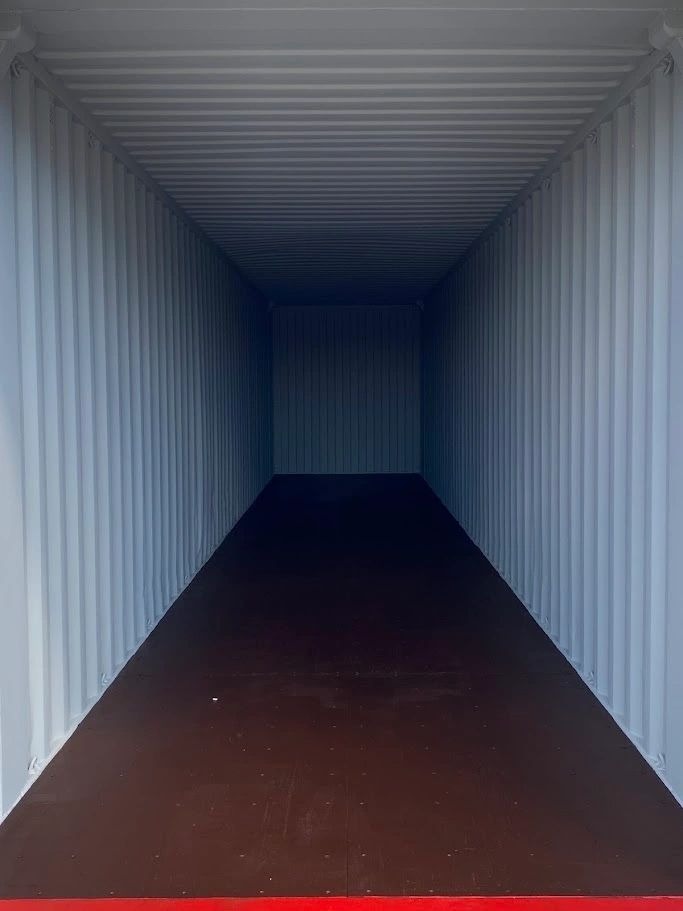5 Myths About Steel Shipping Containers That You Should Stay Clear Of
Understanding Steel Shipping Containers: Versatile Solutions for Modern Needs
Steel shipping containers, which stemmed as an advanced method for transferring goods throughout seas, have actually evolved into multifunctional structures with a wide range of applications. Their robustness, mobility, and versatility make them an ideal choice for various markets, from logistics and construction to retail and hospitality. In this article, we dive into the characteristics, benefits, applications, and factors to consider surrounding steel shipping containers.
Overview of Steel Shipping Containers
Steel shipping containers are large, standardized boxes developed for the storage and transport of items. While they at first served the freight market, their tough nature has opened new opportunities for use in domestic, commercial, and commercial applications.
Key Features of Steel Shipping Containers
Feature
Description
Material
Made mainly of corten steel, enhancing durability and resistance to deterioration.
Dimensions
Requirement sizes include 20ft and 40ft containers. Other sizes and customs shapes are likewise readily available.
Design
Developed to be stackable with reinforced corners for stability and stacking effectiveness.
Security
Fitted with lockable doors to provide safe and secure storage.
Portability
Easily transferred on trucks, trains, or ships due to standardized dimensions.
Benefits of Using Steel Shipping Containers
Steel shipping containers come with numerous benefits, making them appealing for numerous applications. Here are a few of the main benefits:
- Durability: Constructed from high-quality steel, these containers can hold up against harsh ecological conditions, including rain, snow, and severe temperature levels.
- Cost-Effectiveness: Compared to conventional building materials, shipping containers frequently offer a more budget-friendly alternative for construction or storage.
- Versatility: Steel containers can be adapted for different uses, from storage units and pop-up stores to homes and offices.
- Sustainability: Repurposing shipping containers is an eco-friendly choice that reduces waste and promotes recycling.
- Customization: Containers can be modified with insulation, windows, doors, and ventilation, making them ideal for numerous environments.
Applications of Steel Shipping Containers
The versatility of steel shipping containers provides them to a wide variety of applications. Here's a list of typical uses:
- Storage Solutions: Ideal for services needing secure storage for stock, equipment, or tools.
- Modular Construction: Used in producing homes, offices, and schools, particularly in remote locations.
- Retail Spaces: Docker stores and mobile retail units take advantage of the special visual of shipping containers.
- Pop-Up Events: Containers function as portable cooking areas, bars, or cafe for events and celebrations.
- Emergency Housing: Easily transportable, they can offer instant shelter in disaster relief efforts.
Table: Common Modifications for Shipping Containers
Modification Type
Function
Insulation
Maintains temperature for climate-controlled environments.
Windows
Provide natural light and enhance visual appeals.
Doors
Assist in gain access to, emergency exits, or boosted security.
Ventilation
Avoids accumulation of moisture and preserves air quality.
Electrical & & Plumbing
Converts containers into operating living or working spaces.
Factors To Consider When Using Steel Shipping Containers
Although there are many advantages to using steel shipping containers, potential users should think about a couple of elements before proceeding:
- Local Regulations: Zoning laws and building regulations can affect the expediency of utilizing a shipping container for particular applications. It's important to validate regulations in your location.
- Site Preparation: A solid structure is vital for positioning a shipping container, especially when customizing it for structural usage.
- Transport Logistics: Consider the cost and logistics of transferring the container to the preferred location.
- Security Measures: Depending on the area of use, additional security procedures might be necessary to secure contents.
Frequently Asked Questions (FAQ)
1. Are all shipping containers the exact same size?
No, shipping containers been available in various sizes, with 20ft and 40ft being the most typical. There are also high cube designs for additional height and tailored options offered.
2. Can shipping containers be modified?
Yes, shipping containers can be modified extensively, including including insulation, windows, doors, and electrical systems to fit differed functions.
3. For how long do shipping containers last?
With correct maintenance, steel shipping containers can last for a number of years, often around 25 years or longer, specifically if used for storage instead of structural functions.
4. Are shipping cogcontainersltd.com ?
Containers are developed to be watertight, however in time, seals can break. Regular examinations and maintenance assistance guarantee that they stay water resistant.
5. How can I buy a shipping container?
Shipping containers can be purchased through specialized manufacturers, shipping container brokers, or even some regional storage companies.
Steel shipping containers are more than simply vessels for transporting products; they represent a sustainable and versatile structure material. Their myriad applications across industries highlight their adaptability to satisfy altering requirements while providing robust solutions. As companies and people alike look for ingenious methods to optimize their operations, steel shipping containers will unquestionably remain a cornerstone for contemporary storage and construction requirements. Whether thinking about a DIY task or seeking affordable storage solutions, the benefits of shipping containers can be an amazing addition to both economic and sustainable practices.
